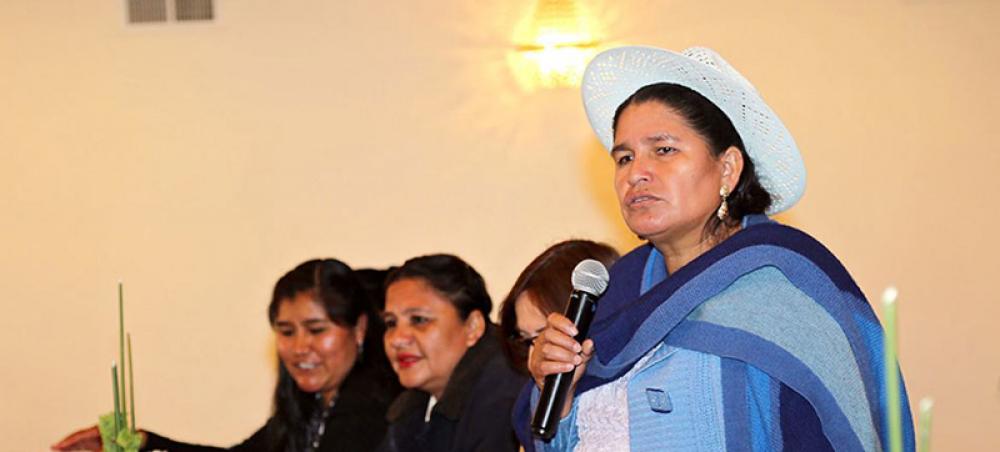Just Earth News | @justearthnews | 16 Jun 2023

Image: UN Women/David Villegas Zambrana
Urgent action is needed to end gender-based bias in public and political life against women which remain deeply entrenched around the world, said the UN human rights chief on Wednesday.
“Patriarchy must be a thing of the past. Our future depends on women and girls being at the table everywhere when decisions are made,” said Volker Türk, the UN High Commissioner for Human Rights.
Only 1 in 4 parliamentarians are women
“It was only last year that for the first time in history women were represented in every functioning parliament in the world. Yet today, still only one in four parliamentarians are women”, he continued.
The UN human rights office (OHCHR) is spotlighting women’s participation in public and political life in June as part of its monthly spotlights, marking the 75th year of the Universal Declaration of Human Rights.
The High Commissioner urged States, parliamentarians, the media, civil society, the private sector and every active citizen to take action, laying out a series of steps that need to be taken starting with tackling the root causes of gender-based discrimination.
He said there needed to be greater emphasis on education and awareness-raising and called for the greater recognition of the value of unpaid care work which disproportionately falls on women.
He called for consideration to be given to quotas, reserved seats and training opportunities to be expanded for women serving in legislative bodies and other key institutions, as well as the private sector.
Zero tolerance of harassment
UN treaty bodies need to keep the push going for gender parity, and zero tolerance against harassment and violence relating to women in politics, including online, needs to become the norm.
And women role models need to have greater visibility, Mr. Turk said.
“At the current rate of change it would take 155 years for women to close the gender gap. This struggle is even harder for historically marginalized women whose representation lags behind.”
“Simply said, this is a wake-up call”, the UN rights chief declared.
“Parity can’t wait. Equal and meaningful participation of women in practice isn’t just about women’s rights to be heard, it is about our societies’ ability to tackle the most pressing crises confronting our world today.”